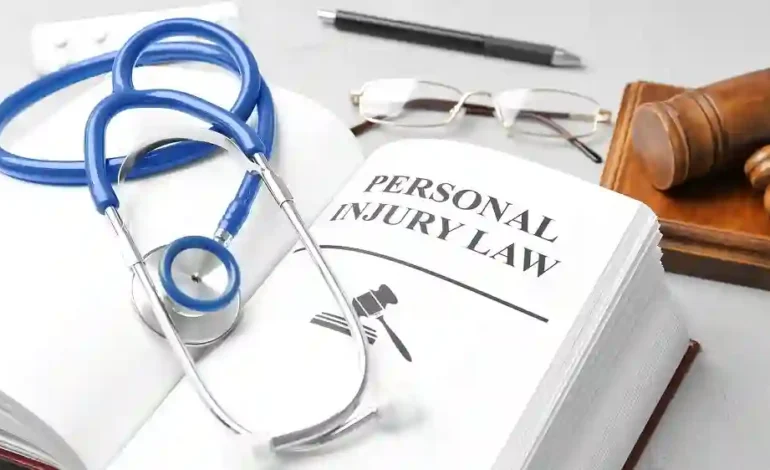
Spinal Cord Injuries: Legal Assistance for a Challenging Journey
Hello, dear readers! Life can take unexpected turns, and unfortunately, some individuals find themselves facing the devastating impact of spinal cord injuries. A spinal cord injury (SCI) is a life-altering event that can result from accidents, falls, sports injuries, or medical conditions. It can lead to profound physical, emotional, and financial challenges for both the victim and their family. In this article, we’ll explore spinal cord injuries, the immense challenges they present, and the crucial role of legal assistance in helping victims navigate this challenging journey.
Chapter 1: Understanding Spinal Cord Injuries
A spinal cord injury occurs when there is damage to the spinal cord, disrupting its ability to transmit messages between the brain and the rest of the body. These injuries are typically categorized as complete or incomplete, depending on the extent of the damage. The consequences of spinal cord injuries can vary widely, from temporary loss of sensation to permanent paralysis, affecting the victim’s mobility, bodily functions, and overall quality of life.
Chapter 2: The Impact of Spinal Cord Injuries
Spinal cord injuries are life-altering events that can have profound and lasting effects:
- Physical Challenges: Victims often face mobility issues, loss of sensation, muscle weakness, and the need for assistive devices such as wheelchairs.
- Emotional Toll: Coping with the aftermath of a spinal cord injury can lead to emotional distress, depression, anxiety, and post-traumatic stress disorder (PTSD).
- Financial Strain: The cost of medical treatment, rehabilitation, assistive devices, and ongoing care can be overwhelming. Additionally, spinal cord injuries often result in lost income, further exacerbating financial strain.
- Lifestyle Changes: Victims need to adapt to significant lifestyle changes, including modifications to their homes, transportation, and recreational activities.
Chapter 3: The Role of Legal Assistance
In the face of spinal cord injuries, legal assistance becomes indispensable for victims and their families. Personal injury lawyers specializing in spinal cord injury cases offer a range of crucial services and support:
- Case Evaluation: Personal injury lawyers assess the merits of your case, including liability, damages, and potential sources of compensation.
- Gathering Evidence: Lawyers are skilled at collecting crucial evidence, such as accident reports, medical records, expert opinions, and witness statements, to build a strong case.
- Establishing Liability: Lawyers work to establish negligence on the part of the responsible party, demonstrating how they breached their duty of care, leading to the spinal cord injury.
- Negotiating with Insurers: Lawyers are adept negotiators who can engage with insurance companies to secure fair settlements that adequately cover your losses.
- Litigation: In cases where fair settlements cannot be reached, lawyers can represent you in court, presenting your case to a judge and jury to advocate for your rights.
Chapter 4: Types of Spinal Cord Injury Cases
Personal injury lawyers handle a wide range of spinal cord injury cases, including:
- Traumatic Spinal Cord Injuries: These result from accidents such as car crashes, falls, sports injuries, or acts of violence. Lawyers advocate for victims who face life-altering consequences due to the negligence or wrongdoing of others.
- Medical Malpractice: Spinal cord injuries can occur as a result of medical errors during surgery, misdiagnosis, or inadequate treatment. Lawyers help victims pursue compensation for medical expenses, pain and suffering, and ongoing care.
- Workplace Accidents: Some spinal cord injuries occur in workplace accidents, such as construction site mishaps or industrial accidents. Lawyers navigate the complexities of workers’ compensation claims and third-party liability to secure adequate compensation.
- Product Liability: Faulty products, such as defective safety equipment, can lead to spinal cord injuries. Lawyers assist victims in pursuing claims against manufacturers, distributors, or retailers.
Chapter 5: Compensation for Spinal Cord Injuries
Compensation for spinal cord injuries can encompass various categories, including:
- Medical Expenses: Coverage for past and future medical treatment, surgeries, therapy, medications, and assistive devices.
- Lost Income: Reimbursement for income lost due to the injury and any future income you may lose due to disability.
- Pain and Suffering: Compensation for the physical and emotional distress caused by the spinal cord injury.
- Rehabilitation Costs: Coverage for rehabilitation or retraining expenses if you are unable to return to your previous job due to your injuries.
- Home Modifications: Funds to adapt your home to accommodate your disability, such as wheelchair ramps, widened doorways, or bathroom modifications.
- Assistive Devices: Compensation for mobility aids, prosthetics, and other assistive devices required for daily life.
Chapter 6: Navigating the Long Road to Recovery
Spinal cord injuries often require extensive rehabilitation and ongoing medical care. Personal injury lawyers understand the complexities of these cases and work diligently to ensure that victims receive the necessary resources to navigate the long road to recovery.
- Medical Experts: Lawyers consult with medical experts who can provide critical insights into the long-term consequences of spinal cord injuries and the associated costs.
- Vocational Rehabilitation: Personal injury lawyers may engage vocational experts to assess the victim’s ability to return to work or explore alternative career options.
- Life Care Planners: Life care planners assist in developing comprehensive plans to address the ongoing medical, rehabilitation, and personal care needs of spinal cord injury victims.
Chapter 7: The Emotional Support of Personal Injury Lawyers
In addition to their legal expertise, personal injury lawyers also provide emotional support and understanding to victims and their families during these challenging times. They become advocates for your physical, emotional, and financial well-being, offering reassurance and guidance throughout the process.
In conclusion, spinal cord injuries are life-altering events that can have profound physical, emotional, and financial consequences. Personal injury lawyers are essential allies for victims, offering legal expertise, support, and advocacy to help them seek justice and secure the compensation they need to rebuild their lives. If you or a loved one has experienced a spinal cord injury, don’t hesitate to seek legal representation. By gathering evidence, establishing liability, negotiating with insurers, and representing you in court when necessary, personal injury lawyers play a vital role in ensuring that you receive the compensation you deserve for your injuries and losses.





